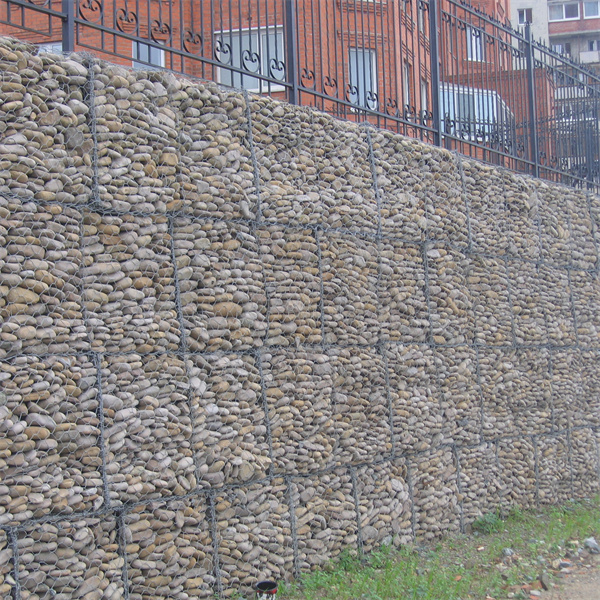Окт . 01, 2024 14:07 Back to list
Top Manufacturers of Gabion Basket Materials for Effective Construction Solutions
Understanding Gabion Basket Material Manufacturers
Gabion baskets have gained significant popularity in various construction and landscaping projects due to their versatility, sustainability, and strength. These wire mesh containers are used to hold rocks, soil, or other materials and are commonly employed in erosion control, retaining walls, riverbank stabilization, and even decorative purposes. A critical aspect of gabion baskets is the materials used in their manufacture. This article explores the different types of materials employed by gabion basket manufacturers and their importance in ensuring the durability and effectiveness of these structures.
Types of Materials Used in Gabion Baskets
1. Wire Mesh The primary material used in the construction of gabion baskets is wire mesh. Manufacturers typically utilize welded or woven wire for creating the structure. The wire is often made from galvanized steel, which provides resistance to corrosion and extends the lifespan of the baskets, especially in harsh environmental conditions. Stainless steel is also an option for more demanding applications where corrosion resistance is crucial.
2. Coating Types Beyond the standard galvanized wire, several coating options enhance the durability of gabion baskets. Polymeric coatings, for instance, provide additional resistance to environmental stressors, including UV rays and chemically aggressive environments. The selection of the coating depends on the intended use of the gabion structure and the environmental conditions it will face.
3. Filling Materials While the structure of a gabion basket is essential, the choice of filling material is equally important. Manufacturers offer a range of options, including natural stones, recycled concrete, bricks, and soil. The filling not only contributes to the weight and stability of the structure but also affects its aesthetic appeal. When natural stone is used, for example, it can blend seamlessly into the landscape, while recycled materials offer an environmentally friendly alternative that supports sustainability efforts.
4. Accessories Alongside the main materials, gabion basket manufacturers often provide additional accessories to enhance the functionality of their products. These may include geotextiles, which can prevent the soil from washing away while allowing water drainage. Cellophane ties and anchors are crucial for securing the baskets in place, ensuring they remain stable during adverse weather conditions.
gabion basket material manufacturers

Importance of Material Selection
The selection of materials used in gabion basket manufacturing directly influences the effectiveness and longevity of the structure. High-quality materials resist degradation from environmental factors such as moisture, temperature fluctuations, and exposure to chemicals. For instance, using galvanized wire mesh significantly minimizes the risk of rust, which can compromise structural integrity over time.
Additionally, the right combination of filling materials can enhance the gabion's ability to manage water flow, making it a vital component in erosion control projects. Properly designed gabion baskets can withstand various loads, thereby helping in the construction of reliable and durable retaining walls and other structures.
Sustainability Considerations
Another significant trend in gabion basket manufacturing is the focus on sustainability. As environmental awareness increases, manufacturers are exploring eco-friendly materials and processes. For example, utilizing recycled materials for filling not only reduces waste but also lowers the overall carbon footprint of the construction project. Moreover, gabion baskets themselves can promote biodiversity by providing habitats for various organisms when appropriately designed and filled with natural materials.
Conclusion
Gabion basket material manufacturers play a crucial role in the construction industry by providing durable, efficient, and sustainable solutions for various applications. The choice of materials, from the wire mesh to the filling, directly impacts the performance, longevity, and ecological footprint of gabion structures. As the demand for more environmentally friendly construction practices continues to grow, manufacturers are likely to innovate further, leading to improved materials and techniques that enhance the effectiveness of gabion baskets in addressing modern engineering challenges. Understanding these elements helps both consumers and industry professionals make informed choices when selecting gabion solutions for their specific needs.
-
HESCO Gabion Baskets for Coastal Erosion Prevention
NewsAug.22,2025
-
Longevity and Durability of River Rock Gabion Walls
NewsAug.22,2025
-
How to Integrate Gabion 3D Walls in Urban Planning
NewsAug.22,2025
-
Reno Mattress Gabion Applications in Civil Engineering
NewsAug.22,2025
-
How to Install Wire Mesh for Gabion Baskets Properly
NewsAug.22,2025
-
Best Materials for Filling a Chain Link Gabion
NewsAug.22,2025
-
Wire Mesh Thickness Impact on Gabion Wall Load Bearing
NewsAug.12,2025






